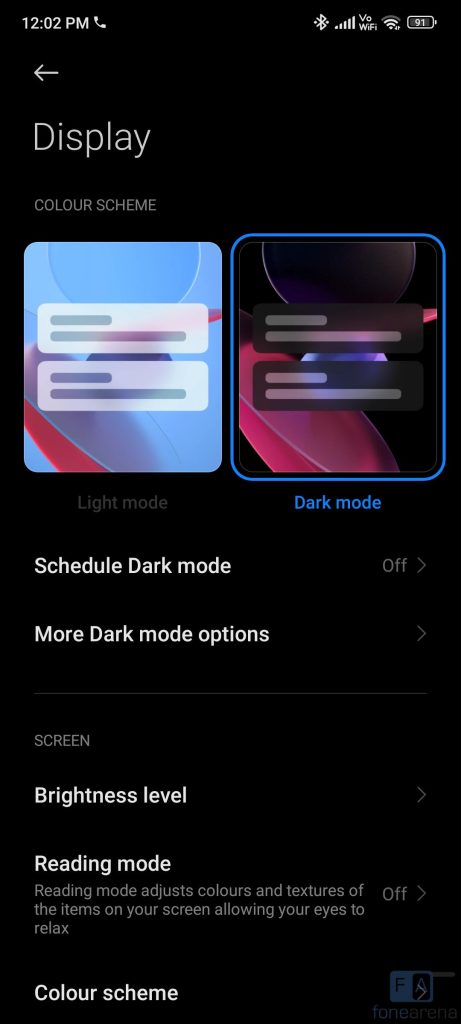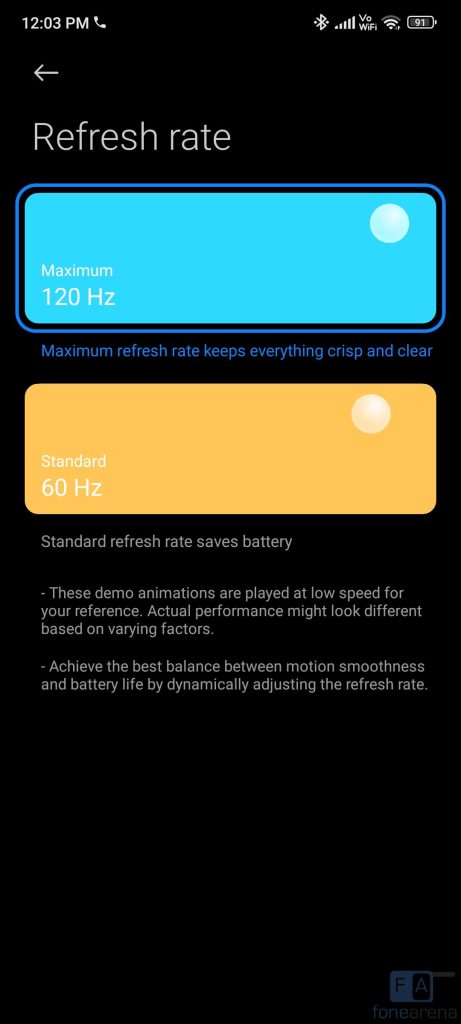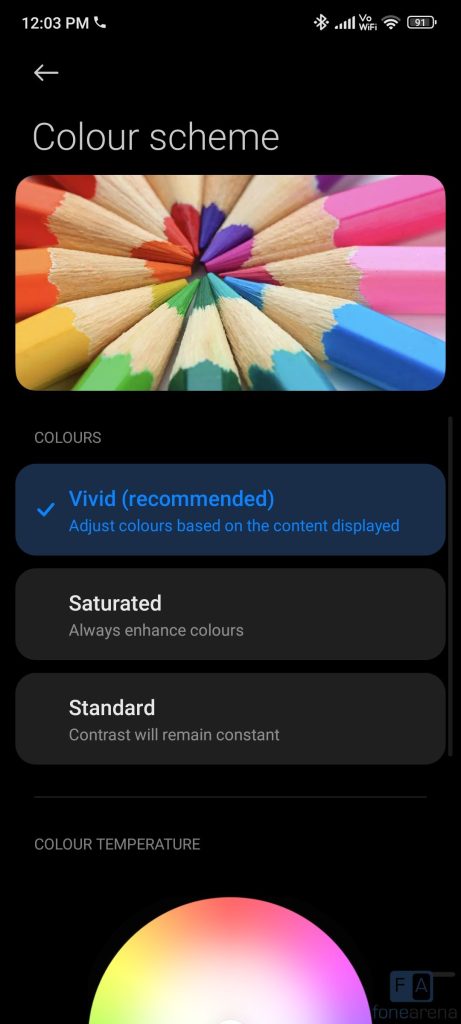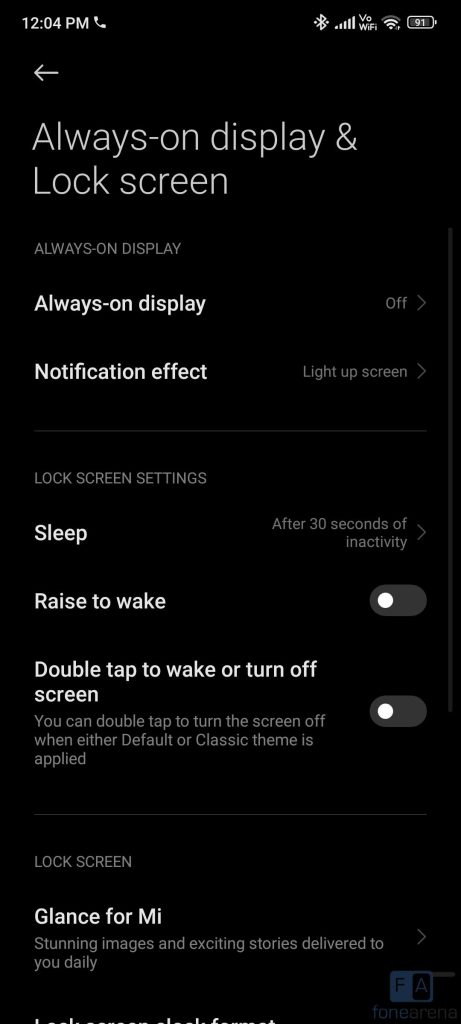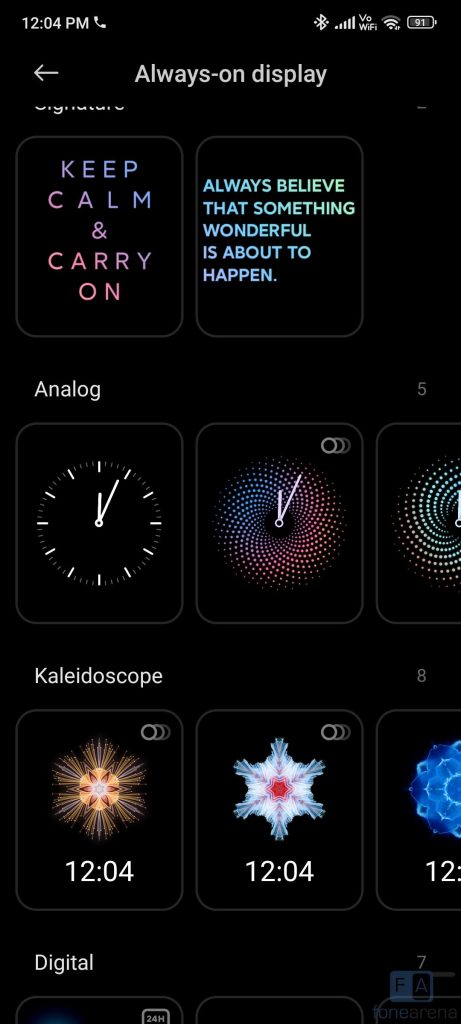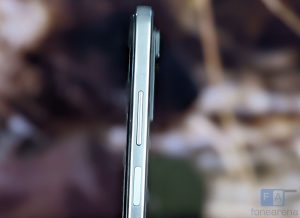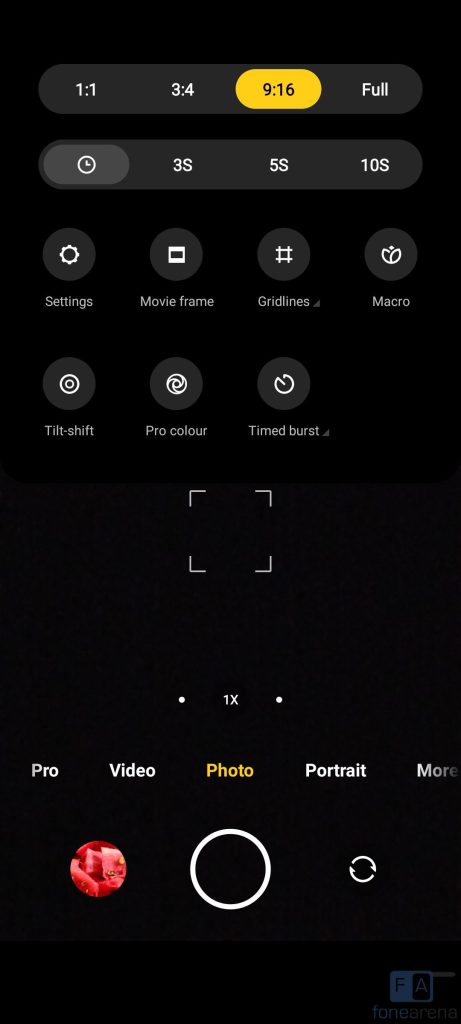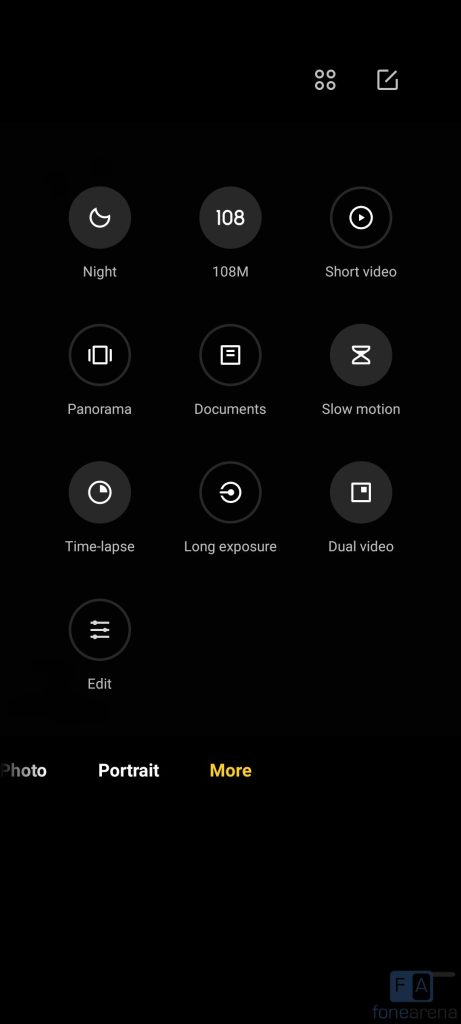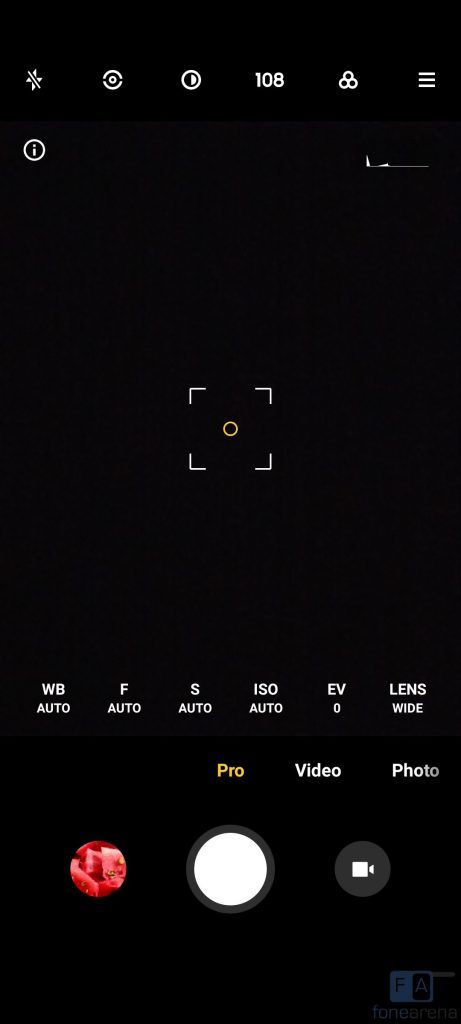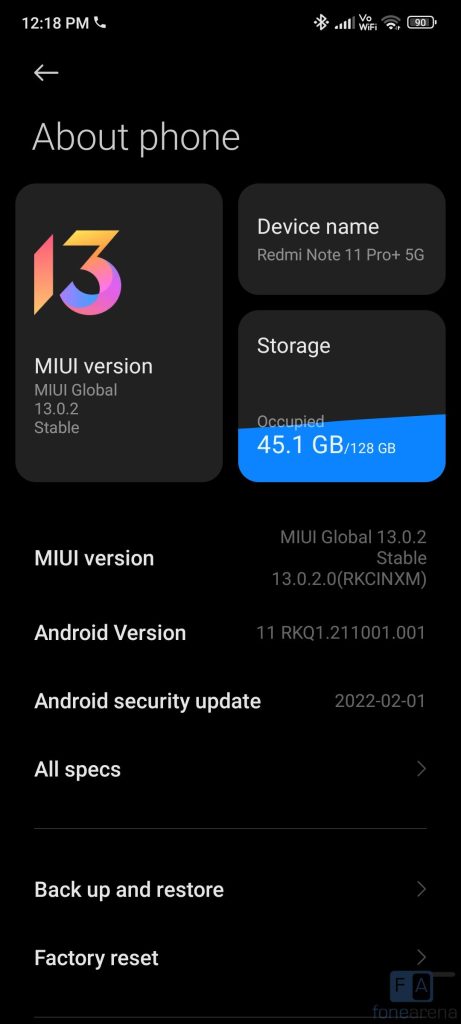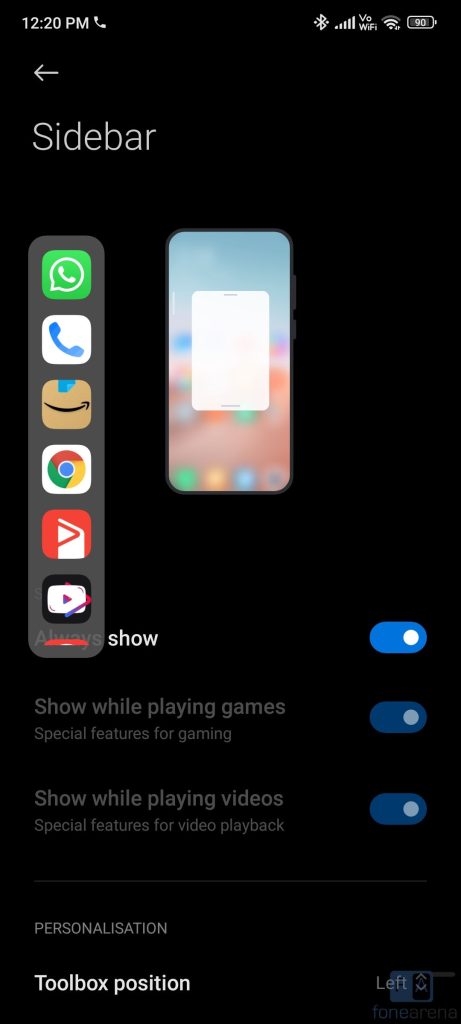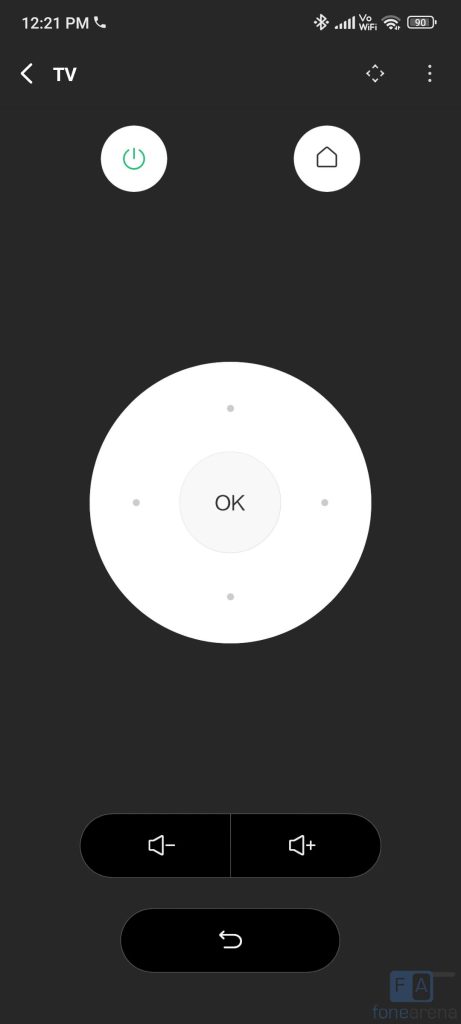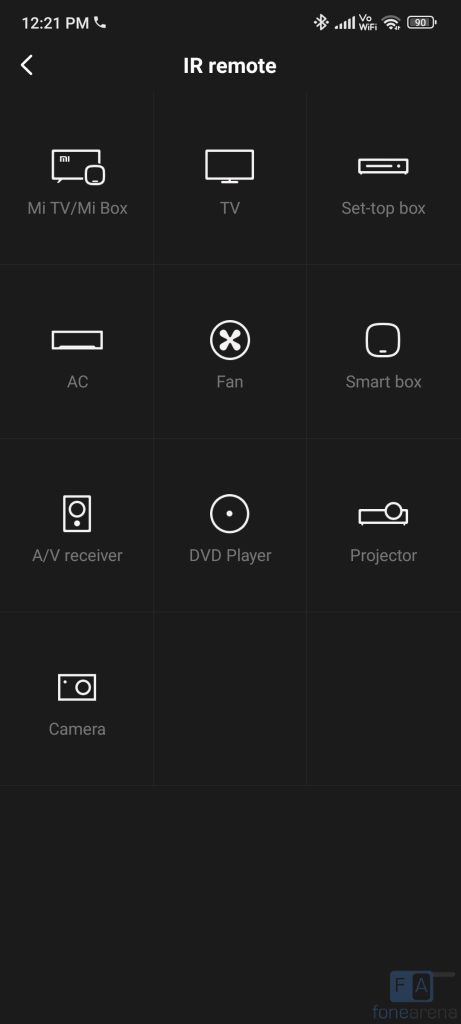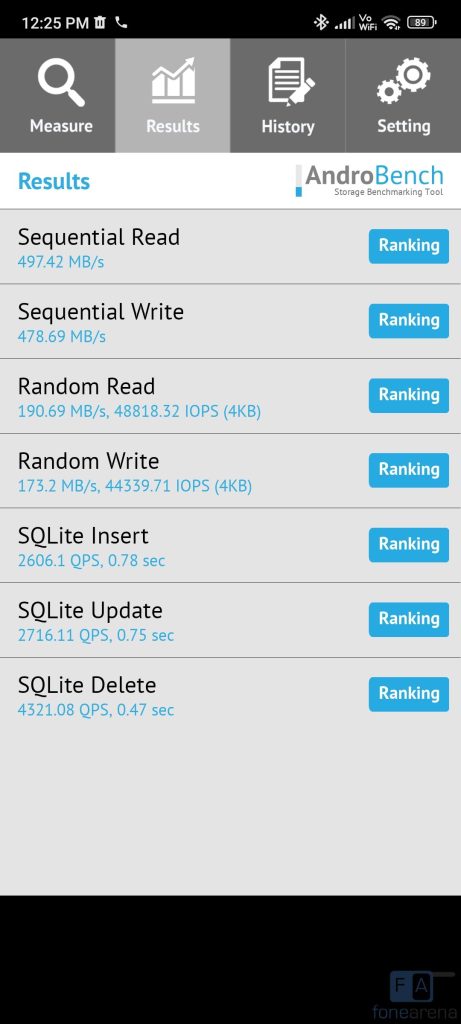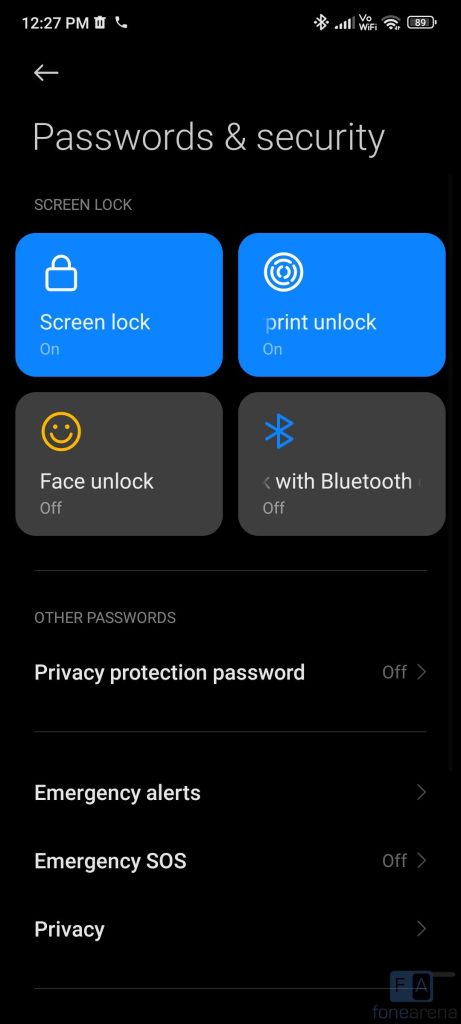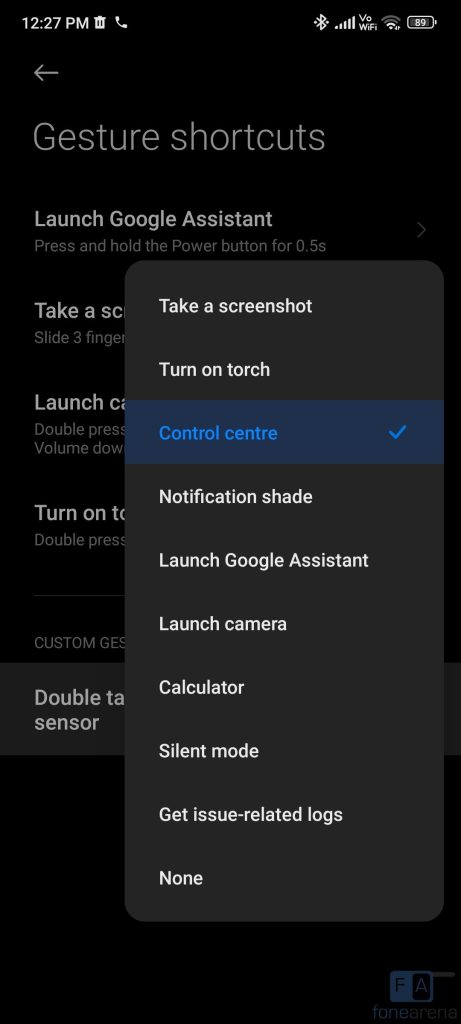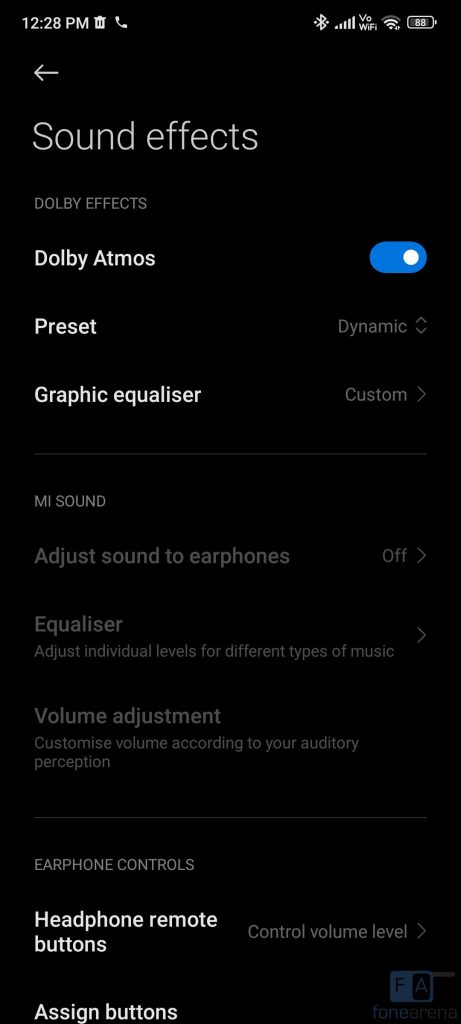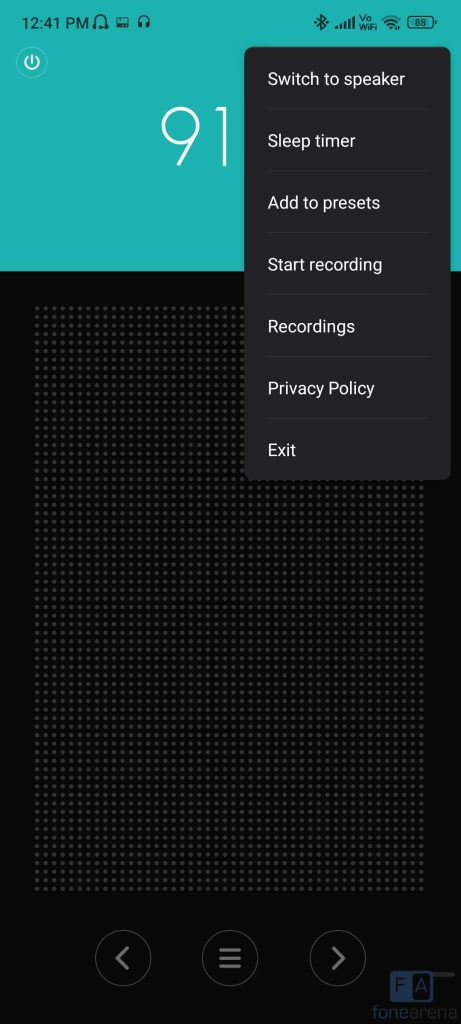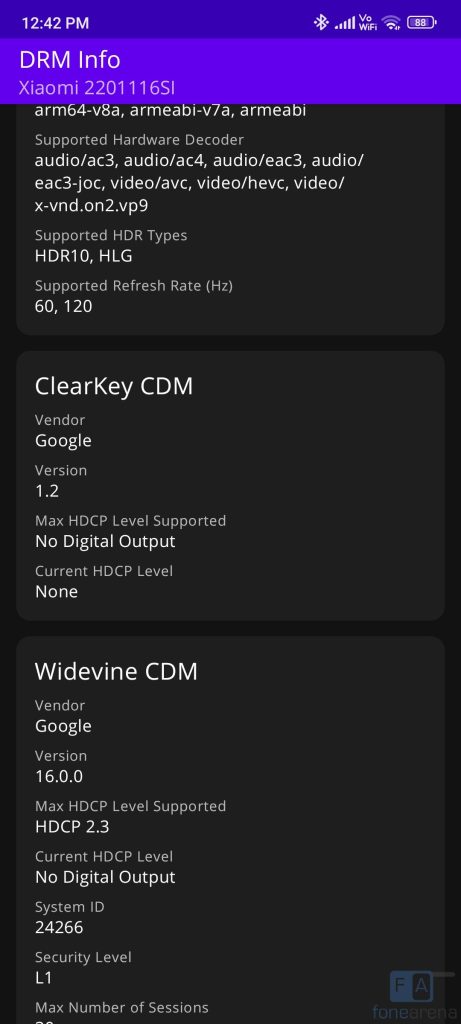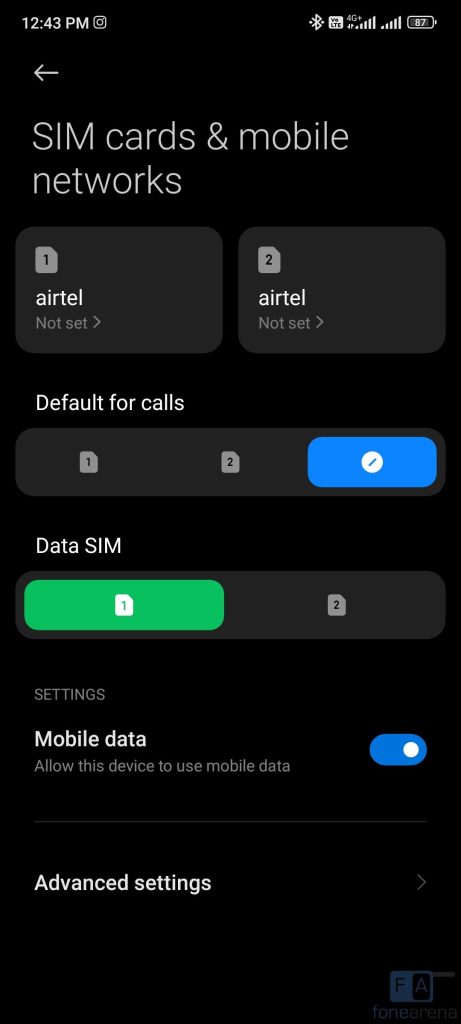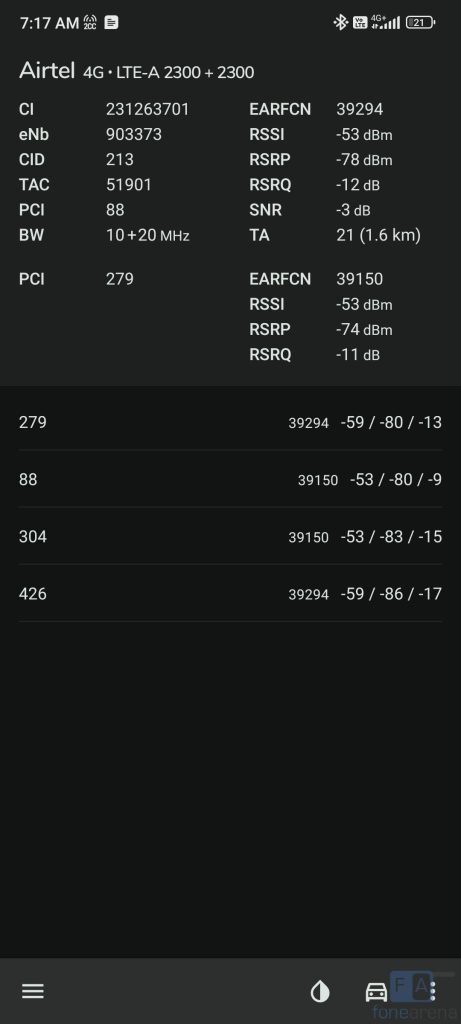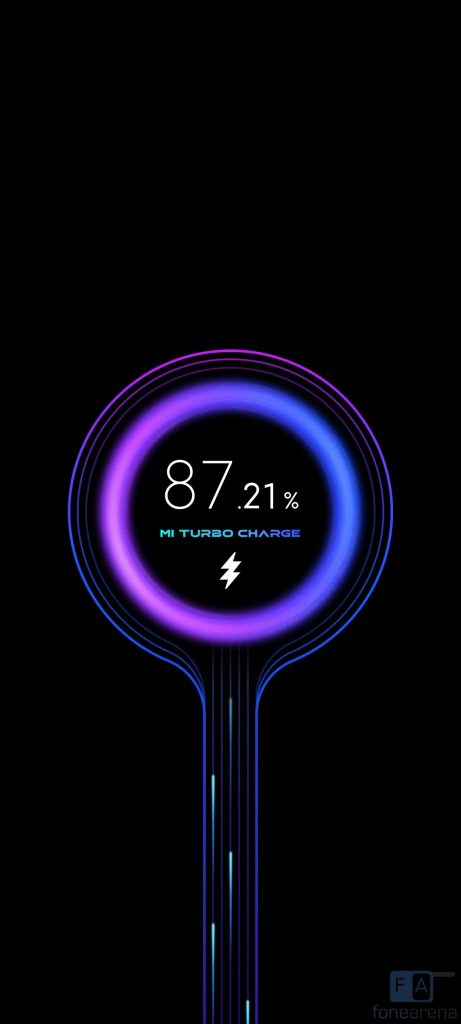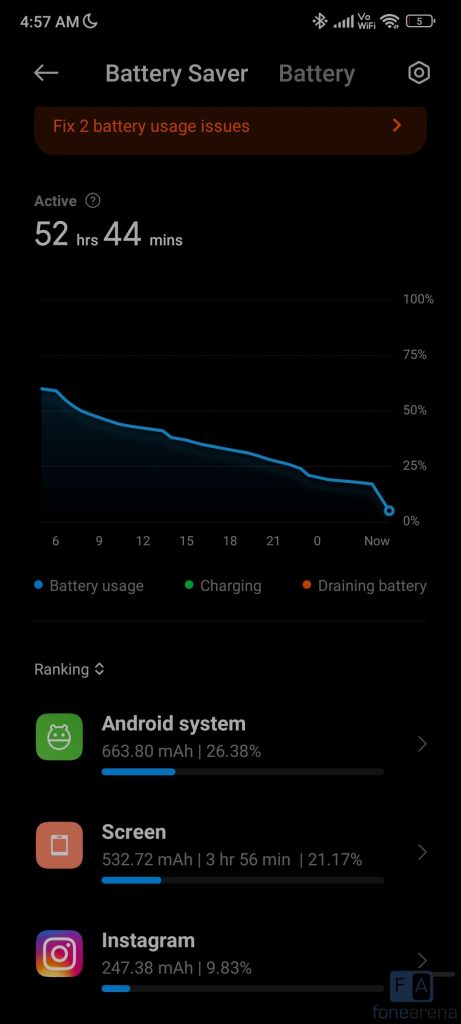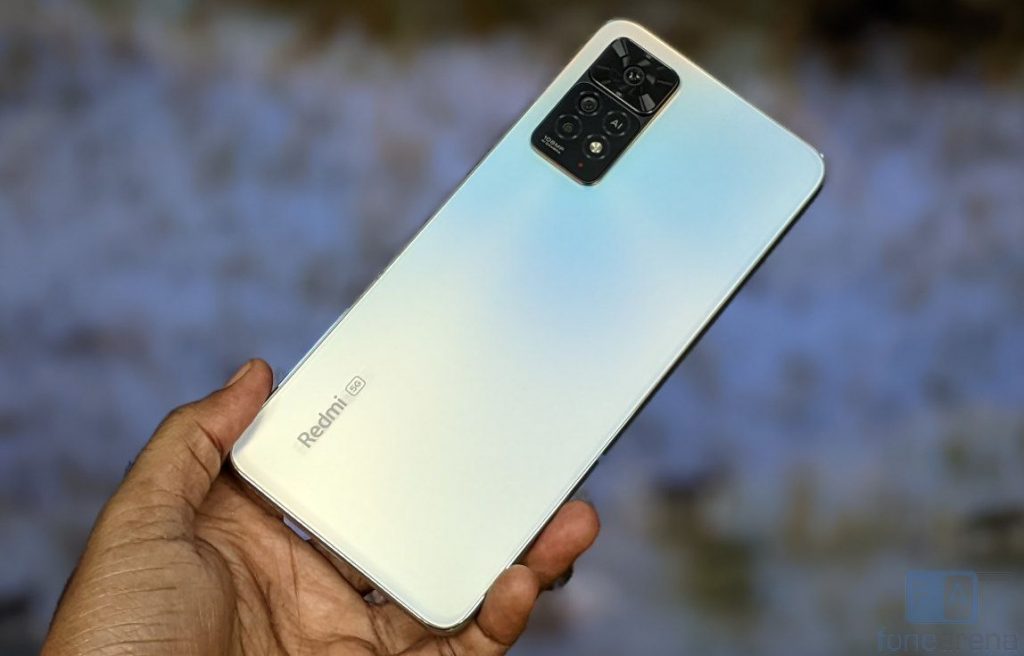
Xiaomi launched the Redmi Note 11 Pro+ 5G in the Redmi Note 11 Pro series in India earlier month as the successor to last year’s Redmi Note 10 Pro series. This was announced as Redmi Note 11 Pro 5G earlier this year. Even though this retains the 120Hz AMOLED screen and the 108MP camera from the Redmi Note 10 Pro Max, this adds 5G support, new Snapdragon 695 SoC, and also comes with 67W fast charging. Is the phone worth the price of Rs. 20,999? Let us dive into the review to find out.
Box Contents
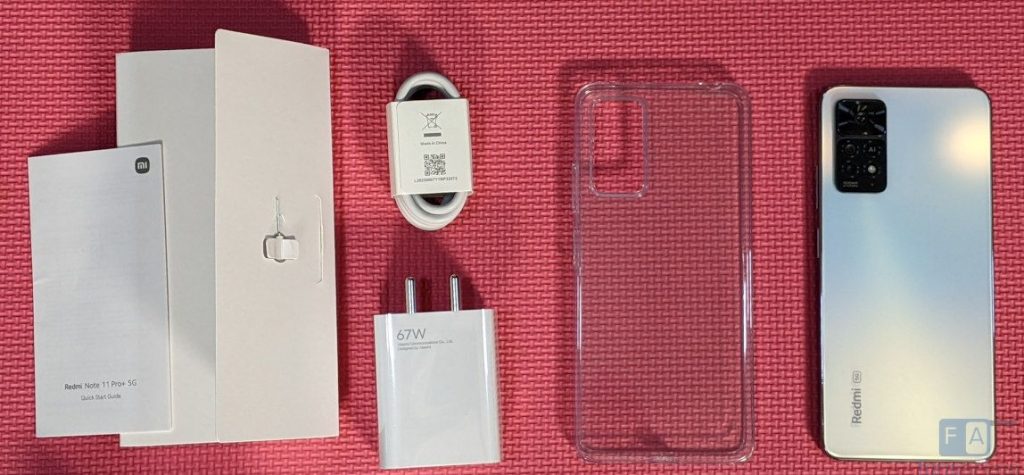
- Redmi Note 11 Pro+ 5G 8GB + 128GB in Phantom White colour
- 67W fast charger
- USB Type-C Cable
- SIM Ejector tool
- Clear protective case
- Screen protector (Pre-installed)
- User guide
Display, Hardware and Design
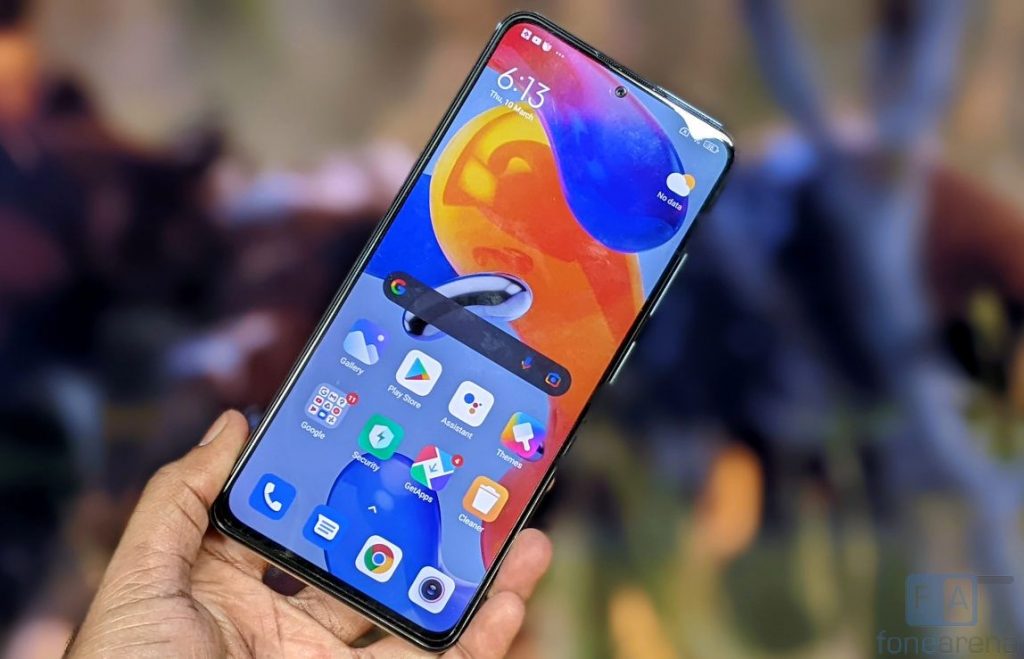
Starting with the display, the Redmi Note 11 Pro+ 5G has a 6.67-inch Full HD+ AMOLED display with a pixel resolution of 2400 × 1080 pixels, 20:9 aspect ratio 2.5D curved glass screen and a pixel density of about 395 PPI. The display is bright, thanks to 700 nits (HBM) and 1200 nits (peak) brightness, which is enabled when you are watching HDR content. It supports DCI-P3 wide colour gamut, so the colours are vibrant.
It has 120Hz display refresh rate and 360Hz touch sampling rate, which when enabled offers a buttery smooth user experience, especially when you are scrolling through the UI and when gaming. This doesn’t have adaptive refresh rate, so it can only switch between 90Hz and 120Hz. It also has HDR 10 support. The phone comes with Corning Gorilla Glass 5 protection.
Under the display options, there are different options to adjust colours and contrast based on your preference. There is also a reading mode that lets you reduce the display’s blue light emission, so it doesn’t cause eye strain when you are reading at night. There is Dark mode, similar to other MIUI phones. It doesn’t have DC Dimming or Anti-flicker mode, but I didn’t notice any flickering issue in low light conditions.
The phone has an always-on-display option, which can be enabled from display settings. This doesn’t consume a lot of power since this is an AMOLED screen, but the company says that it increases the power consumption, so it turns off automatically when the phone stays dark for a long time or battery saver restrictions are applied. It doesn’t have super wallpaper or live wallpaper.
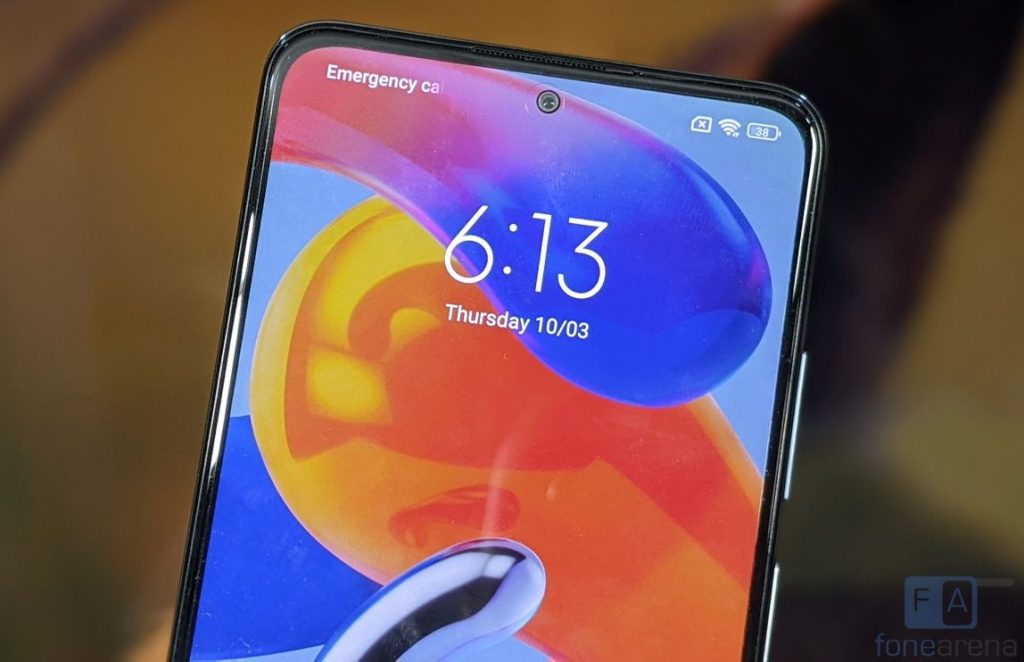
The phone has a tiny 2.96m punch-hole that houses a 16-megapixel camera, which doesn’t disturb when watching videos since it just occupies a small space. Above the display there is an earpiece on the top edge which also doubles up as a secondary speaker. Xiaomi says it has 1.76mm ultra narrow side bezels, to make it compact.
Coming to the button placements, the volume rockers and the power button that integrates the fingerprint sensor are present on the right side of the phone. On the top there is a 3.5mm audio jack, vent for speaker, secondary microphone and an infrared sensor. The hybrid dual SIM slot, loudspeaker grill, primary microphone and USB Type-C port are present on the bottom. Since the phone has a polycarbonate frame, you don’t see any antenna cutouts. The phone features an Z-axis linear vibration motor, which enables custom vibration patterns across the UI for the best haptic experience.
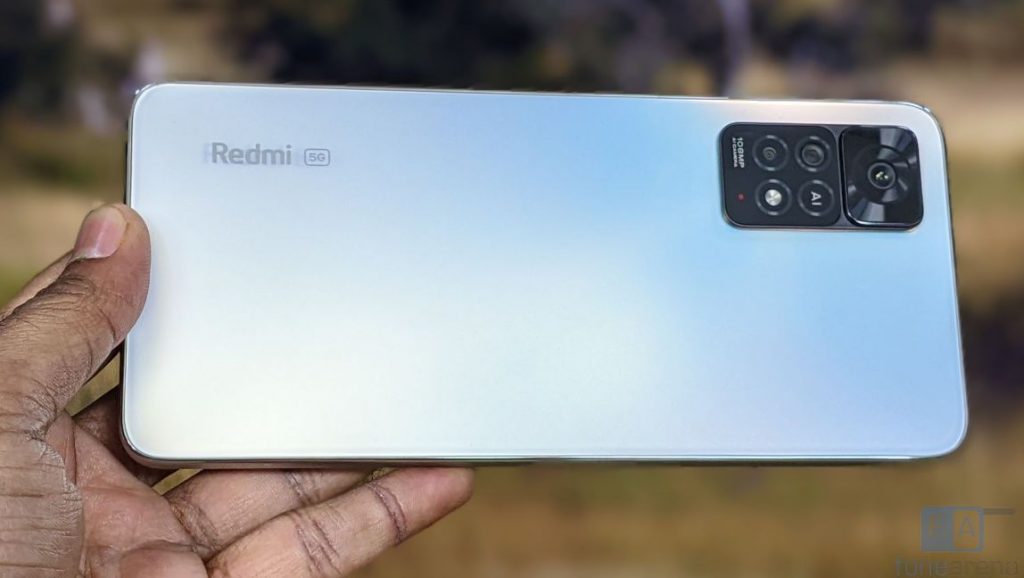
Even though the phone has a large screen, it is easy to hold since it is 76.1 wide. It is also 8.12mm thick, and weighs 202 grams since it has a huge, 5000mAh battery.

We have the Phantom White colour, but the phone also comes in Stealth Black and Mirage Blue colours. The Black and White models have an anti-glare matte finish that doesn’t attract fingerprints, but the Mirage Blue colour has a unique rear design with patterns. Xiaomi says that it uses hardened glass on the back, but it doesn’t have Corning Gorilla Glass 5 protection. The phone also has IP53 ratings for splash resistance that you rarely see in other phones in the range.
Camera
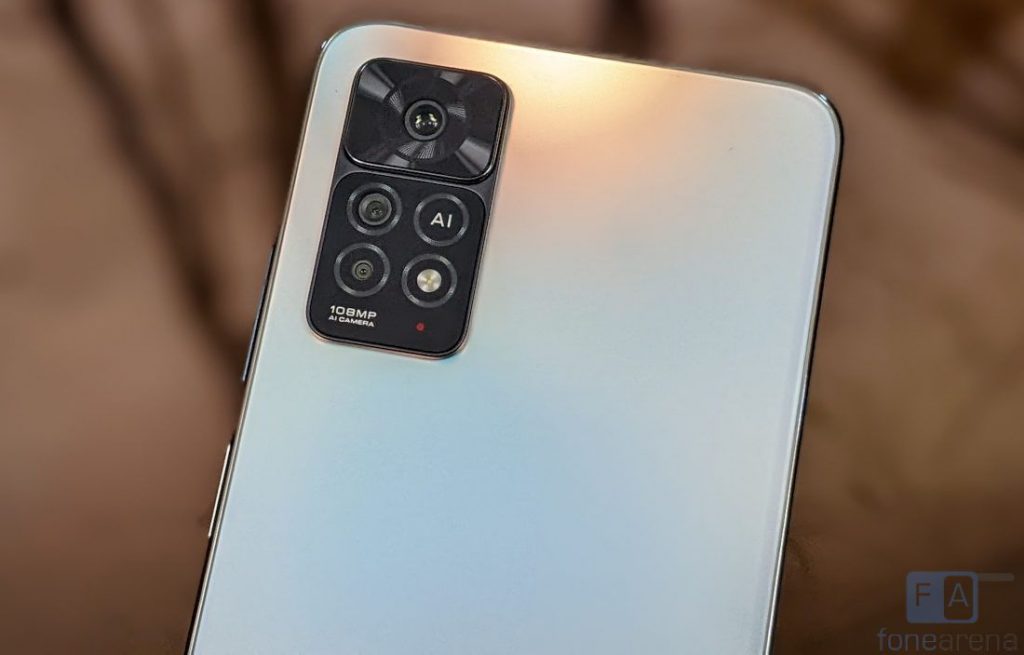
- 108MP primary rear camera with Samsung ISOCELL HM2 sensor, f/1.9 aperture, Dual Native ISO, EIS
- 8MP Ultra-wide camera with f/2.2 aperture
- 2MP macro camera with sensor, f/2.4 aperture
- 16MP front camera with f/2.45 aperture
The camera UI is familiar with other Xiaomi smartphones running MIUI 13. You get all the features such as Pro, Night, 108MP, Short Video, Panorama, Documents, Slow motion, Time-lapse, Dual video, AI watermark, Long exposure and Pro mode lets you adjust white balance, focus, shutter speed (1/4000s to 15 seconds), ISO (50 to 6400) and option to select main, ultra-wide and macro lens. You can also shoot in RAW in Pro mode and enable focus peaking, exposure verification and more options. Xiaomi has enabled Cam2API by default, so you can side-load ported Google Camera APKs for advanced editing, including RAW capture.
Coming to the image quality, daylight shots came out well with good dynamic range. After nine-pixel binning technology, you get 12MP output. HDR shots are better with improved dynamic range. 8MP wide-angle shots are decent. 108MP mode that offers a lot of details and can go up to 25MB in size. Even though there is no telephoto lens, it uses the software for offering up to 10x digital zoom. This is like taking an image and cropping up later. Even in the 2x zoom, images start to lose details, so it is not recommended going beyond 2x if you don’t want to lose details. The dedicated 2MP macro sensor is average. Wish the company had added a telemacro camera, which was present in the Note 10 Pro series. Edge detection in decent portrait shots, even thought it lacks a dedicated portrait camera.
Low-light shots are good, thanks to 9-in-1 Super Pixel technology that lets the camera’s sensor hardware combine 4 pixels into a single 2.1μm large pixel, and the night mode is even better, making the images brighter offering more details. Images with flash are good, and the flash is not overpowering. Daylight front camera shots from the 16-megapixel front camera are decent, but it could have been better. Output is 16MP in resolution. Portrait shots have decent edge detection, even though it is done using software.
Check out the camera samples.
The main restriction with the Snapdragon 695 is that it can only record videos at up to 1080p resolution at 30 fps, and doesn’t support 4K video recording even though it has a 108MP camera. It also has slow motion recording at 720p. You can also shoot 1080p videos using the ultra-wide and 720p video using macro camera.
Software, UI and Apps
It runs Android 11 out of the box, with MIUI 13 on top. It has February, 2022 Android security patch recently. MIUI 13 lets you uninstall several system apps. The company said that it will get Android 12 update soon, but there is no exact date yet. MIUI 13 works on the MIUI 12.5 Enhanced in improving the features such as battery life improvements and performance improvements, and also brings features like sidebar.
Since the phone has an infrared sensor for remote function, it comes with Mi Remote that lets you control your home appliances easily. Out of 8GB LPDDR4x RAM, you get 7.44GB of usable RAM, and about 3.6GB of RAM is free when default apps are running in the background. It also as up to 3GB of memory extension or virtual RAM, which you can disable from additional settings. Out of 128GB, you get about 101.6GB of free storage. It has UFS 2.2 storage, but we only got sequential read speeds of about 497MB/s.
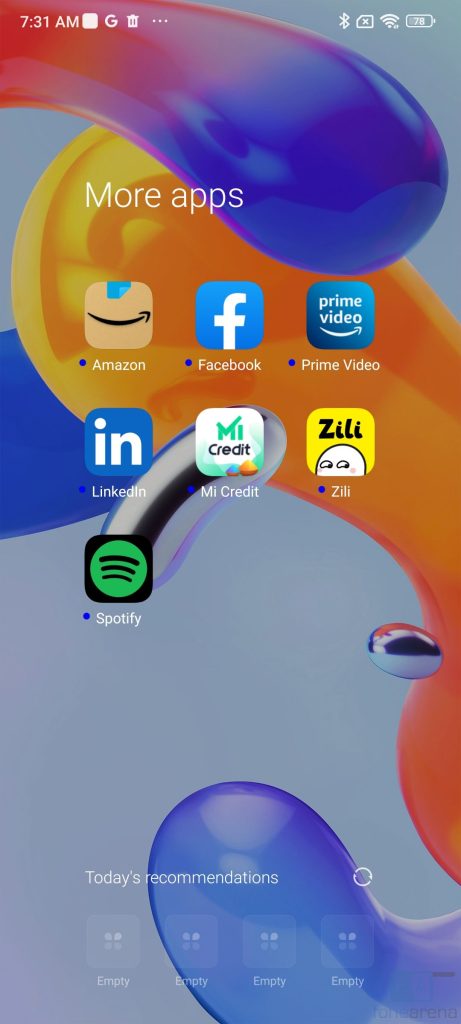
Apart from the usual set of utility apps, Google apps and Xiaomi’s own set of apps, it comes preloaded with Amazon Shopping, Facebook, Prime Video, and Spotify apps. It also asks for additional app installation during setup, which you can skip. You can easily uninstall these apps, but these come up when you reset the phone. Even though there is personalized ads option during set up and recommendations in all the apps, you don’t get any ads in apps.
Fingerprint sensor and Face unlock
Even though it has an AMOLED screen, the phone has a fingerprint sensor on the ride side, embedded into the power button. It immediately unlocks the phone just by keeping your finger on the power button so that you don’t have to press it. You can add up to 5 fingerprints. There are also gesture features in the power button that lets you double tap to perform actions such as take a screenshot, turn on torch, launch camera, and more. The phone also has face unlock, but it is not as secure as fingerprint.
Music Player and Multimedia
The Mi Music Player is the default music player with usual Xiaomi audio effects and equalizer. It also has FM Radio with recording. Audio through the speaker is loud. Since the phone has stereo speakers, audio is pretty loud However, the back of the phone doesn’t vibrate in high volume that was found in the POCO X3 and few other phones. Audio through earphones is good as well. There is Dolby Atmos and Hi-Fi audio that enhances the audio performance.
It has Widevine L1 support, so you can play HD content on Netflix, Amazon Prime Video and other streaming apps without any issues. It has HDR but it doesn’t work on YouTube or Netflix, which was a feature available on the Redmi Note 10 Pro and Pro Max models.
Dual SIM and Connectivity
It supports 5G, and has support for 7 5G Bands (N1,N3,N5,N8,N28,N40,N41 and N78). It has 4G VoLTE for Reliance Jio, Airtel and other networks and support Dual 4G VoLTE that offers 4G in both the SIM cards at a time. The phone supports carrier aggregation as well. Other connectivity options include Dual-Band Wi-Fi 802.11 ac. It has VoWiFi / Wi-Fi calling support, Bluetooth 5.1 LE, Dual GPS/AGPS, Glonass, Beidou, but it doesn’t have NFC. It also has USB OTG support that lets you connect USB drives. Call quality is good, and we did not face any call drops and the earpiece volume was loud.
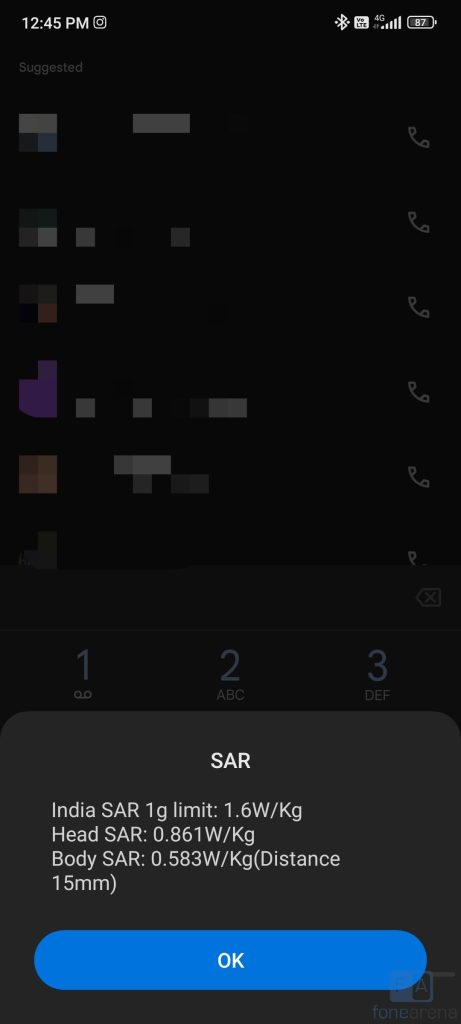
The Redmi Note 11 Pro+ 5G’s body SAR is 0.583W/Kg (Distance 15mm) and head SAR is at 0.861/Kg, which is well under the limit of 1.6 W/kg (over 1 g) in India.
Performance and Benchmarks

This is one of the first phones to be powered by the Snapragon 695 6nm SoC. It has 2.2 x A78 CPUs clocked at up to 2.2GHz, 6x A55 CPUs clocked at up to 1.8GHz. It has Adreno 618 GPU that promises up to 30% GPU performance increase compared to the predecessor. The phone has up to 8GB LPDDR4X RAM. We did not face any issues or frame drops in the graphic-intensive games. In BGMI it supports up to HD – High settings, in COD Mobile it supports High – Max settings. It reached up to 41°C indoors with Wi-Fi, with about half an hour of intensive gaming.
That said, check out some synthetic benchmark scores below.
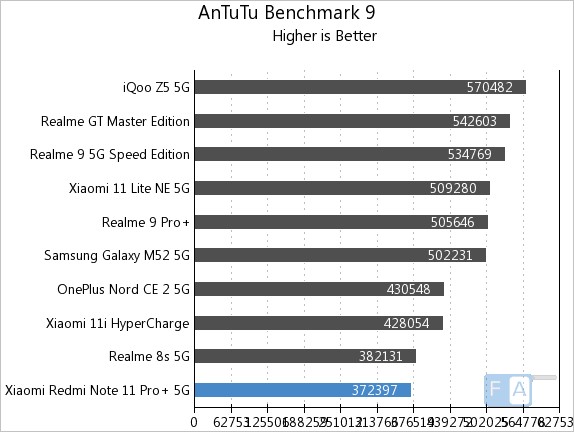
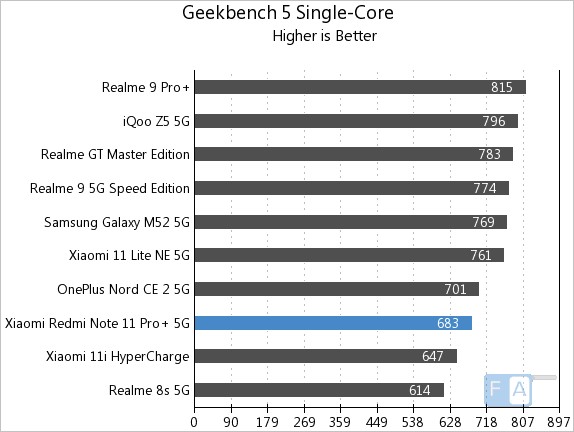
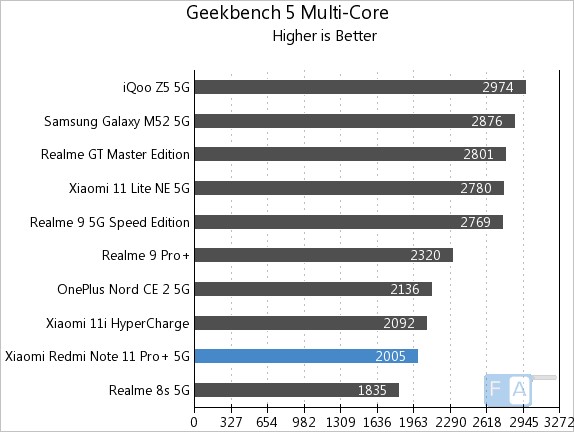
As you can see from the benchmarks, the SoC is on par with Dimensity 810, but the Snapdragon 778G and Dimensity 900 series are better.
Battery life
Coming to the battery life, the phone has a 5000mAh (typical) built-in battery that lasts for 2 days with average use and one whole day even with heavy use, thanks to optimization in the MIUI 13. I got about 4 hours of screen on time with over two days of use in 120Hz refresh rate.
It has 67W fast charging that can charge up to 50% in 15 minutes and 100% in about 50 minutes. It gets a bit warm when the phone is charging.
Conclusion
At a starting price of Rs. 20,999, the Redmi Note 11 Pro+ 5G is a decent upgrade to the Redmi Note 10 Pro Max. The important upgrades in terms of processor and charging and 5G support are a welcome move, but the Snapdragon 695 chip limits the video recording to 1080p 30 fps and the overall performance of the chip is average.
Alternatives
If you are looking for a gaming phone, the realme 9 SE 5G is a good option with Snapdragon 778G SoC and 144Hz LCD screen, but you miss the AMOLED screen and the camera. The iQOO Z5 5G also has the same Snapdragon 778G chip and is targeted at gamers. If you don’t need the 108MP camera and can manage with the 64MP camera, you can also wait for the POCO X4 Pro 5G that launch next week since it will be cheaper.
Availability
The Redmi Note 11 Pro+ 5G is priced at Rs. 20,999 for the 6GB + 128GB model, the 8GB + 128GB model costs Rs. 22,999 and the 8GB + 256GB model costs Rs. 24,999. It is available from Amazon.in, Mi.com, Mi Home stores and offline stores.
Pros
- 120Hz AMOLED display is good
- Stereo speakers with Dolby Atmos
- Primary camera is decent
- Premium glass body
- IP53 water-resistant
- Good battery life with 67W in-box charger
Cons
- No 4K video recording
- Average performance
- Ultra-wide and macro cameras are average

